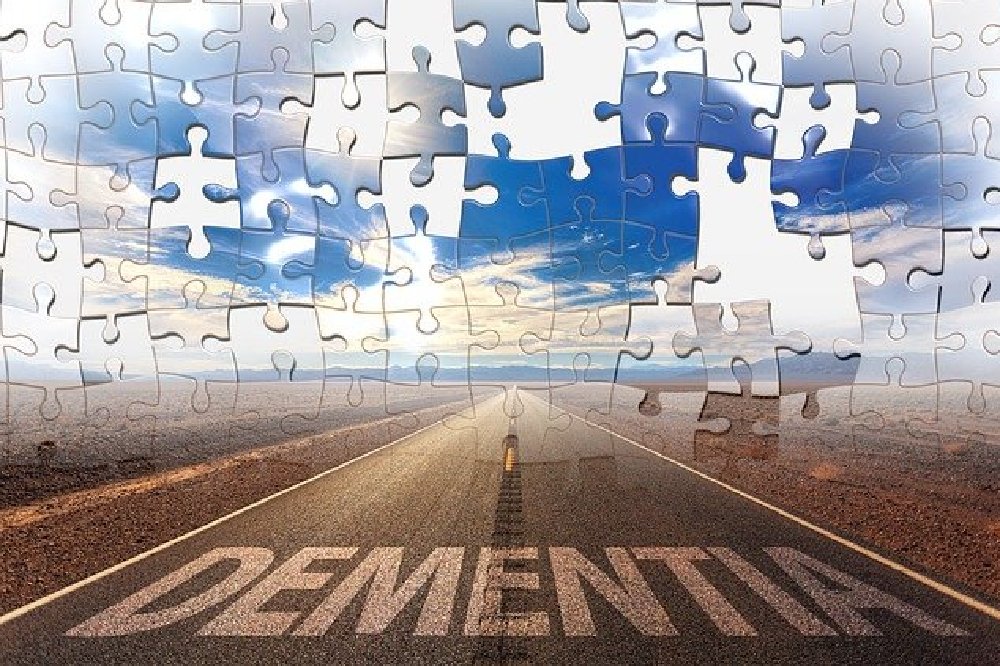Coronavirus is posing a significant risk for people affected by dementia and many are cut off from the outside world. Around 95% of people with dementia are over 65, with many having other underlying health conditions. As a higher risk group, they are being advised to be particularly careful with the ‘stay at home’ rules.

Image courtesy of Pixabay
Keeping Active
There’s evidence to suggest that physical activity improves confidence and the wellbeing of people with dementia and may slow down mental decline. The impact of staying active for people with dementia’s quality of life and health is huge.
Gardening
As well as getting fresh air, gardens and outdoor spaces can provide great pleasure for people living with dementia. You can use smell, touch and sound as well as sight to create an enjoyable and stimulating environment.
Gardening is also easily adaptable and talking about plants and flowers can also prompt conversation about which ones people recognise, their favourites and memories connected to them.
If you don’t have a garden at home, you might find that an allotment or just visiting a green open space on a regular basis could help your emotional wellbeing.
Walking
Completing your own Memory Walk is a great way to stay active and raise vital funds for Alzheimer’s Society. We see plenty of people with dementia and thousands of people who care for loved ones with the condition put their best foot forward – it’s a great way to virtually share experiences, have a leisurely stroll and raise vital funds to help beat dementia.
It’s completely free to register and it’s up to you where you walk, from lapping your garden or local park to revisiting somewhere special. Whether it’s on your own, with your household or with your four-legged friends, it’s your walk, your way.
Money raised will go towards reaching as many people affected by dementia as possible by increasing telephone support via our Dementia Connect support line, which is a lifeline to thousands of people. Find out more at memorywalk.org.uk
Have a routine
We know that people with dementia are worried about losing their routine. Developing a daily routine will make staying at home easier, as it can help people with dementia know what to expect on a given day and feel less anxious.
With so many things changing on a frequent basis, we recommend putting a regular and manageable schedule in place - if you are living with dementia and find you feel better at certain times of the day, try to arrange activities for then. Also take things one step at a time – try to focus on one thing at a time and break each task down into smaller steps if you need to. Also look out for changes in behaviour. Dementia can often cause this and some people may show higher levels of agitation during lockdown.
Keep the mind active and engaged
Keeping mentally active is as important as keeping physically active, especially as many people with dementia will experience a loss of routine and fewer opportunities to be part of their local community.
If you live with someone with dementia, look for activities to do together. Puzzles and games can be an enjoyable way of keeping the mind active - as well as board games, there are also plenty of activity apps available that you can download. Our online shop (alzheimers.org.uk/shop) has a variety of products like this specifically for people with dementia. Whatever activity you chose to do, from knitting to puzzles, a routine to do these at set times can help the time pass.
As a carer of someone with dementia, it’s important to look after yourself too. Focusing on your breathing and being ‘present’ in the moment can help you feel calm and have a positive impact on your wellbeing. Meditation techniques like mindfulness, deep breathing and yoga can all help.
Ask for help if you need it
If you are ever concerned about a health condition for you or the person with dementia, speak to your doctor or usual healthcare professional. This could be to do with coronavirus, dementia or something else. And remember, you’re not alone – there are plenty of online support networks available, where you can seek ideas, support and advice, including Alzheimer’s Society’s Talking Point. The online community can connect you with others affected by dementia to share tips and ways to cope during this crisis. It can be accessed online for free, night or day at alzheimers.org.uk/talkingpoint
Alzheimer’s Society’s Dementia Connect support line 0333 150 3456 provides information and practical measures for people affected by dementia around coronavirus and directs people towards other reliable sources. Alzheimer’s Society’s Emergency Appeal will raise funds to help keep the Dementia Connect support line going and extend telephone and virtual support, so Alzheimer’s Society can be there for everyone with dementia during these unprecedented times.
You can help support Alzheimer’s Society’s Emergency Appeal by donating making a one-off donation today at alzheimers.org.uk/coronavirus-appeal
For up to date information, our services and practical measures we can all take to protect people with dementia during the coronavirus crisis, please visit alzheimers.org.uk
Tagged in Alzheimer's Disease Coronavirus

